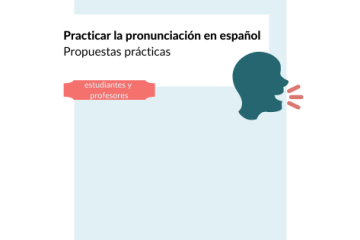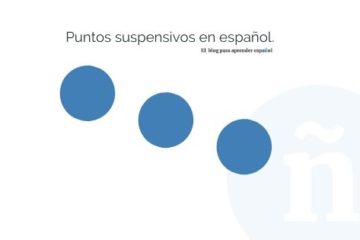Subjunctive Adverbial Phrases in Spanish
The subjunctive adverbial phrase rules can be difficult to learn for an English speaker. Some references just give huge long lists without much explanation. First, it helps to identify three types of adverbial expressions:
1. Conditional. This type of adverbial phrase indicates that the main clause will not occur without the action in the adverbial clause. Because of this relationship, the adverbial clause is always in the subjunctive.
The image of the gate works for the conditional adverbial phrase. If the subordinate clause is not true, the main clause is not true. In Spanish, these phrases are called oraciones condicionales.
 2. Time. A large group of adverbial clauses are related to concepts of time such as before, until, or as soon as. The general rule for these clauses is that from the time perspective of the main clause, the subjunctive is used if the adverbial clause is in the future. Note that the current time is irrelevant, and the phrase can occur in the past.
2. Time. A large group of adverbial clauses are related to concepts of time such as before, until, or as soon as. The general rule for these clauses is that from the time perspective of the main clause, the subjunctive is used if the adverbial clause is in the future. Note that the current time is irrelevant, and the phrase can occur in the past.
The simple before and after clauses are unfortunately special cases that need to be memorized. In Spanish this adverbial clause is called oraciones temporales, which should be translated to time not temporary.
3. Concessive. This type of adverbial phrase concedes a fact. In these cases, the adverbial phrase is in the subjunctive mood if there are any doubts, the  facts are really unimportant, or the speaker wishes to disagree. The image of the face with the eyes looking away implies the words ‘although’ or ‘perhaps’ or ‘whatever’ as in questioning the statement, before proceeding with the main clause of the sentence. In Spanish, these phrases are called oraciones concesivas.
facts are really unimportant, or the speaker wishes to disagree. The image of the face with the eyes looking away implies the words ‘although’ or ‘perhaps’ or ‘whatever’ as in questioning the statement, before proceeding with the main clause of the sentence. In Spanish, these phrases are called oraciones concesivas.
Conditional Adverbial Phrases
Sin Que Without
Con tal de que Provided that
A menos que Unless
A no ser que Unless
En caso de que In case that
Como si As if
Siempre y cuando As long as
El hecho de que In fact that
Para que In order that
A fin de que In order that
The rules of these conditional adverbial phrases are the easiest, you always use the subjunctive. The event in the main clause cannot occur without the condition from the adverbial clause. Some of these clauses are not as clear of a condition as others but follow the same rules such as para que, como si and a fin de que. The following three examples each use a different subjunctive mood.
In order that Ana doesn’t get wet, I will bring her an umbrella. (present)
Para que Ana no se moje, le llevaré un paraguas.
Provided that she has cleaned her bedroom, she can watch a movie. (present perfect)
Con tal de que ella haya limpiado su dormitorio, puede ver una película.
Unless he finished his dinner, he could not have desert. (past)
A menos que él terminara su cena, no podía tomar el postre.
Jorge talked as if someone was listening. (pluperfect subjunctive)
Jorge hablaba como si alguien estuviera escuchando.
Adverbial Phrases Connected to Time
Cuando When
En cuanto As soon as
Tan pronto como As soon as
Hasta que Until
Mientras While
Una vez que Once you have
Siempre que Whenever
Después de que After
Subjunctive mood occurs with clauses related to time when the action is in the future or potential from the perspective of the main clause of the sentence.
This future or potential action can occur using the past tense as in the second example where the parents are anticipating the baby to stop crying.
When you have time, take out the trash.
Cuando tengas tiempo, saca la basura.
The baby would not fall asleep, until he stopped crying.
El bebé no se dormiría / iba a dormir, hasta que dejara llorar.
While I am here, everything will be fine.
Mientras yo esté aquí, todo estará bien.
Indicative mood occurs when the action in the adverbial phrase has already occurred or is a routine occurrence.
As soon as we heard the dog bark, we knew that a robber was in the yard.
Tan pronto como el perro ladró, supimos que había un ladrón en el jardín.
While we make dinner, there is always music playing in the kitchen.
Mientras que preparo la cena, hay música en la cocina.
The guests came after I cleaned the house.
Después de que limpié la casa, vinieron los invitados.
Antes de / Después de
With these simpler words, special rules occur depending upon the number of subjects. With the same subject, the infinitive is used:
Before we ate dinner, we set the table.
Antes de cenar, ponemos la mesa.
After we ate dinner, we washed the plates.
Después de cenar, lavamos las platos.
Antes de que / Después de que
With the two subjects, and antes (some folks use this same rule for después), the subjunctive is used in all tenses.
Before we ate dinner, dad washed the pots and pans.
Antes de que cenáramos, nuestro papa lavó las ollas y sartenes.
A pesar de que Despite
Acaso Perhaps
Quizá Perhaps
Tal vez Such that
Así como Such that
Aunque Even if
Por más que No matter how much
Por mucho que No matter how much
Por muy que No matter how little
De modo que So that
De manera que So that
The concessive adverbial phrases acknowledges a situation but does not necessarily completely agree with it. The subjunctive mood expresses dubious facts or things you aren’t sure are going to occur.
No matter how much you may not want to, you have to wash the car.
Por más que no quieras, tienes que lavar el coche.
I will buy it, even though she may not like it.
Lo compraré, aunque a ella no le guste.
Although it might have been crowded, we went to the park.
Aunque estuviera atestado, fuimos al parque de atracciones.
These same statements can be used with the subjunctive to shrug off the importance of a fact.
Although it is cold, we will go for a bike ride.
Aunque haga frío, montaremos en bici.
These same statements can also be used with the subjunctive mood to state a point of disagreement.
Person 1: It is really hot today. The climate changes all the time.
Hoy hace calor. El clima cambia todo el tiempo.
Person 2: Although it is hot today, it is because of global warming.
Aunque hoy haga calor, es debido al calentamiento global.



0 comentarios